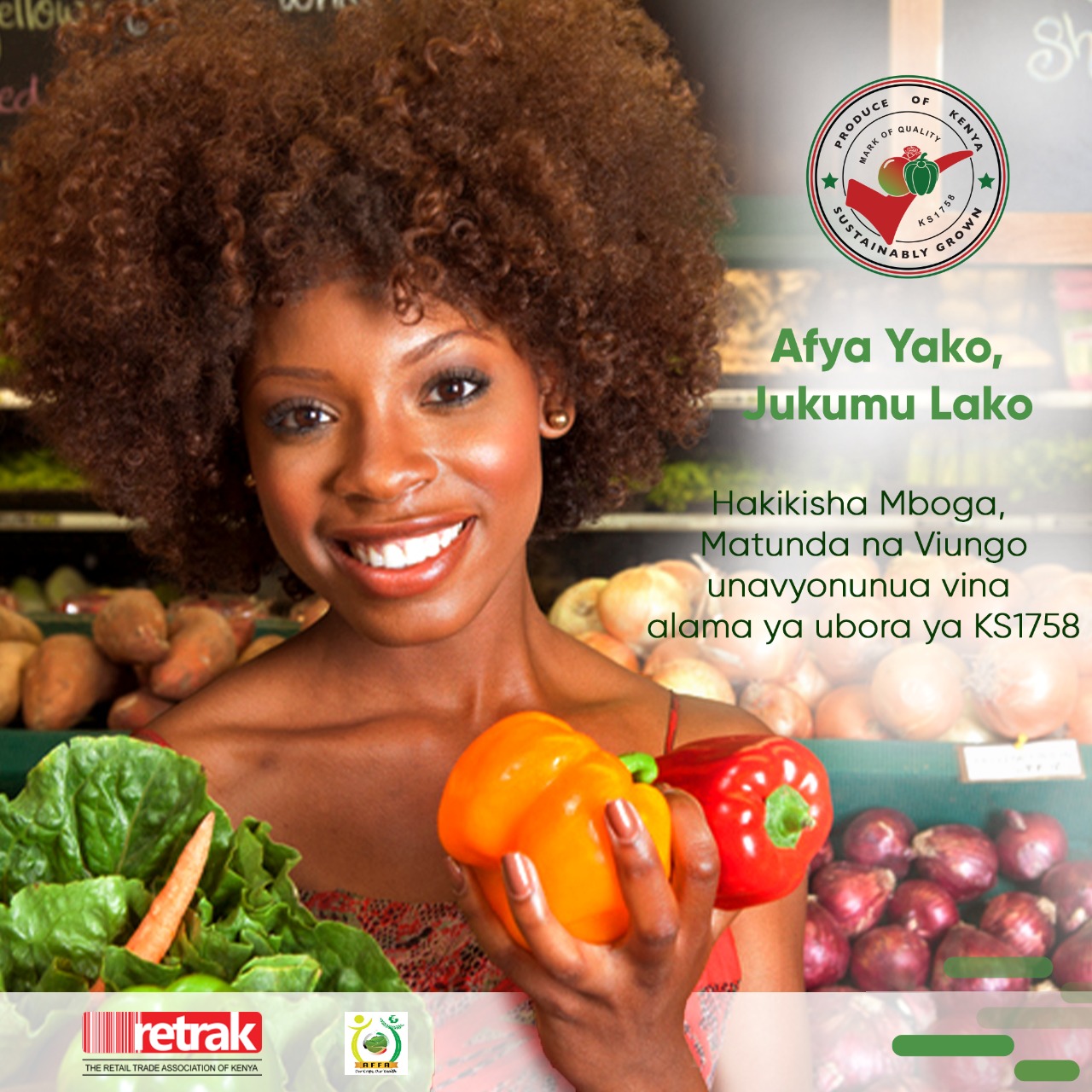
By George Munene
Kenya has introduced a Mark of Quality, 'KS1758’ Code of Practice for locally traded horticultural produce. This is meant to improve the quality and efficacy of domestically consumed vegetables and fruits.
At its unveiling, Agriculture Cabinet Secretary, Peter Munya said the quality mark will also help farmers earn a premium from supermarkets and other retail stores as local consumers have become more aware of the potential hazards of consuming unsafe food. At the same time, the capacity of counties to reach support farmers adhering to these safety regulations will be enhanced. Local governments will also invest in farmer support services such as testing, capacity building, and certification.
Related News: Experts advise farmers to form groups for certification of organic exports
Related News: Fertilizer manufacture enlisting organic farmers to supply ready market
The Government is looking to have this 'KS1758’ adopted as the national standard. To this end, it is working with the Retail Traders Association of Kenya and other private sector players to have supermarkets and other large horticultural retail outlets have their agri-produce suppliers adopt the Mark of Quality.
He pointed out that while the value of horticulture consumed in Kenya has been rising; from being worth Sh209 billion in 2015 to Sh268 billion in 2019; little focus has been placed on ensuring this produce is safe and anywhere near the quality standards demanded by international markets which consume only four per cent of the horticulture produced by the country.
“Most of the focus has been placed on food security and little on produce, quality, and safety. The quality mark will not only enhance market access by addressing pesticide residue challenges and harmful organisms but also protect consumer health”, Munya added.
Related News: Organisation to train more farmers to meet growing organic food demand
A Kenyan first, ‘KS1758’ Code of Practice has been developed with support from the Rockefeller Foundation and a collaborative effort by the Retail Traders Association of Kenya, Horticultural Crops Development Authority, and the Standards Implementation Committee.